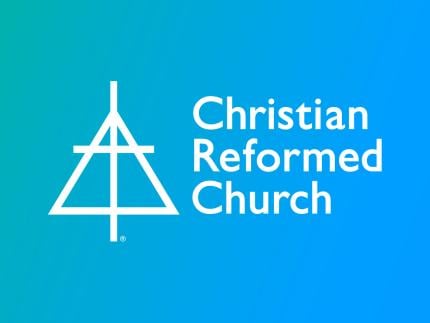2021 CRC Survey Results In

The results of the annual Christian Reformed Church in North America survey for 2021 show that loyalty to the denomination remains strong and congregations are “shaped by grace,” but only a small percentage of people actively work on justice and mercy issues in their communities.
Several months ago, 222 congregations were invited to recruit responses from their members to the 2021 survey. A total of 2,116 people from 143 churches responded.
The CRCNA has contracted with Calvin College’s Social Research Center to administer this denominational survey every year. Each year, one-fifth of CRCNA congregations are asked to urge their members to complete the survey. In this way, input from (potentially) every congregation is tabulated at least once every five years.
This year the questions on the survey were reformatted to fit the broad parameters of the new denominational ministry plan, Our Journey 2025.
Our Journey 2025 encourages individuals and congregations to grow in four specific ministry areas. The four areas are described as “milestones” and were developed on the basis of feedback from conversations at classis meetings, national gatherings, and Inspire events. The milestones encourage us to become people and places that
- Cultivate practices of prayer and spiritual discipline, transforming our lives and communities by the power of the Holy Spirit.
- Listen to the voices of every generation, shaping us for ministry together.
- Grow in diversity and unity by seeking justice, reconciliation, and welcome, sharing our faith as we build relationships with and honor the cultures of our neighbors and newcomers.
- Share the gospel, live it missionally, and plant new churches in our neighborhoods as we discover how to connect with our local and global ministry contexts.
Here is a look at some of the results from the 2021 survey, according to various sections within it. (Please note that in compiling percentages, we have combined the results of two categories — “definitely true” and “mostly true” — to indicate how people responded favorably to an item.)
Cultivating Prayer and Spiritual Disciplines
A large majority of respondents, more than 90 percent, said their church urges people to apply the Bible to their everyday lives.
More than 80 percent of those surveyed said that theirs is a congregation “shaped by grace.”
Some 80 percent responded that their congregation is discerning how God is at work in their church.
And although they gave lower scores to questions about finding ways to work in their local community, most survey respondents indicated that they are satisfied with their church.
Listening to Generational Voices
In general, respondents gave lower scores in this section of the survey. The results here seem to show a disconnect between generations that may need to be addressed.
While 65 percent agreed that they were growing in their sense of belonging in their church, just 55 percent agreed that in the past year they have encouraged a young person in their faith.
The same percentage of people, 55 percent, said they have discussed their faith with someone they trust.
In another section of the survey, however, respondents showed that 80 percent of their churches offer messages and activities for children during worship.
Diversity and Unity
Clearly this is an area in which churches — with the help of denominational ministries — may seek ways to bring their faith into play both inside and outside of their membership. In this category respondents seemed uncertain how to move forward in building diversity and unity in their congregations.
Only 30 percent of respondents agreed that their church is “actively involved in working for justice.”
Meanwhile, 51 percent of people agreed that their church helps them “think through the complex issues facing our world today using kingdom values,” but only 36 percent said that people in their congregation “feel like they are part of a diverse church, gathered from ‘every nation, tribe and tongue.’”
Discovering the Gospel
Some 80 percent of persons surveyed agreed that it was definitely true or mostly true that they are “generous in offering” their “God-given gifts of time, talents, and goods” to meet the needs of their community.
In addition, 75 percent said they “intentionally build relationships with other Christians,” while nearly 70 percent said they feel they are part of the “worldwide church.”
The percentages drop in response to other questions in this category, though, as the survey probes more deeply into routines, practices, and efforts. This seems to show that some churches are struggling with their vision and identity.
For example, a little under half of those who took the survey agreed that their “congregation’s leaders understand how to meet the needs of [their] unique local context.”
And just 34 percent agreed that their church has “a disciple-making process for exploring Christ” in order to gain spiritual maturity.
Similarly, only 34 percent of respondents indicated that they “speak regularly to others about their spiritual life.”
Supporting Deacons
Following a look at the milestones of Our Journey 2025, the survey goes on to ask questions about support for diaconal ministries. This is a new section on the survey this year that aims to provide helpful feedback to ministries wishing to support deacons in their calling.
In response to questions about support of the deacons in their churches, respondents indicated that they offer a high level of prayerful and financial support to deacons. However, many respondents believe deacons need to receive more training in certain areas.
For instance, only 36 percent of respondents said they believed their deacons were “adequately trained to equip the congregation in mercy.” And the number drops to 25 percent when participants are asked if deacons “are adequately trained to equip the congregation in justice.”
Other Survey questions
The survey also delves into areas such as looking more deeply at how congregations view themselves, their vision, and their outreach.
For instance, 75 percent of participants agreed with the statement “I am committed to my church’s mission/vision.” The number dropped to 60 percent, though, in agreeing that their congregation is “closely connected to the Christian Reformed Church denomination and its ministries.”
Another section focuses on worship activities at a church, indicating that 90 percent of respondents appreciated hearing stories in sermons from their pastors; 91 percent appreciated hearing personal testimonies during worship services, and 72 percent appreciated dramas or dramatic readings.
And in a category related to spiritual disciplines, 80 percent of respondents said they pray regularly; 53 percent said they read their Bible daily, and 45 percent stated they pray regularly with a prayer group in their church.
It is important to note that while the design of the survey is set up to provide statistically valid data, the survey respondents are not necessarily representative of the entire denomination. People who completed the survey tend to be age 55 and older, white, and longtime members of the CRCNA. As such, while the survey can point to some trends, its findings must be taken as only part of the full picture.
The 2022 survey will be launched in January. The group of churches asked to participate in that survey will be notified by December 2021. Responses from people of all ages, ethnicities, and levels of familiarity with the CRCNA will continue to be encouraged. Stay tuned to crcna.org/survey for more information.


